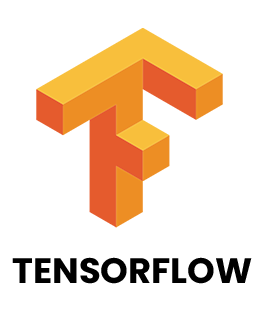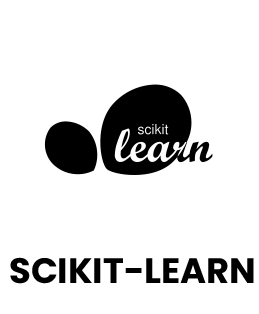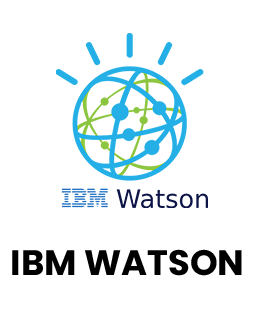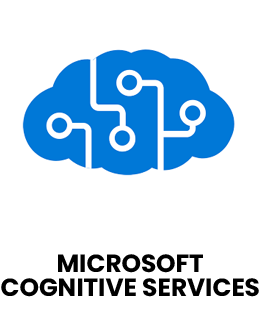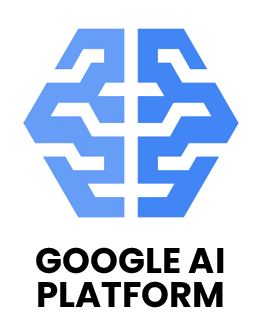ACTE Artificial Intelligence Certification course using TensorFlow is an industry-recognized certification training program that will assist you in mastering conventional neural networks (CNN), perceptron in CNN, TensorFlow, TensorFlow code, transfer learning, graph visualization, recurrent neural networks (RNN), Deep Learning libraries, GPU in Deep Learning, Keras and TFLearn APIs, backpropagation, and So, to become a great Artificial Intelligence Engineer, enroll in the finest Artificial Intelligence course using TensorFlow.
Additional Info
Introduction of Artificial Intelligence:
In the 2021 Magic Quadrant for Data Science and Machine Learning, IBM is positioned as a Leader. A collaboration with Simplilearn and IBM offers students integrated blended learning, preparing them to be experts in Artificial Intelligence and Data Science. The AI courses developed in cooperation with IBM will prepare students for jobs in Artificial Intelligence and Data Science.
IBM, based in Armonk, New York, is a major provider of cognitive solutions and cloud platforms, as well as a wide range of technology and consulting services.IBM invests 6 billion in R&D each year and has received five Nobel Prizes, nine US National Medals of Technology, five US National Medals of Science, six Turing Awards, and ten inductions into the US Inventors Hall of Fame.
Who can Learn Artificial Intelligence:
1. What are the learning goals of this Artificial Intelligence Course?
This Simplilearn and IBM Artificial Intelligence course is a hybrid of AI, Data Science, Machine Learning, and Deep Learning, allowing for the real-world application of sophisticated tools and models. The AI certification course is meant to provide you with an in-depth understanding of Artificial Intelligence principles, as well as the statistical fundamentals necessary for Data Science, Python programming, and Machine Learning.
You will learn how to utilize Python libraries such as NumPy, SciPy, Scikit-Learn, and fundamental Machine Learning techniques such as supervised and unsupervised learning, advanced concepts such as artificial neural networks, layers of data abstraction, and TensorFlow through these AI courses.By 2025, artificial intelligence and machine learning will influence all aspects of everyday life, with applications in areas as diverse as healthcare, transportation, insurance, transportation and logistics, and customer service. A position in this domain puts you on the way to a fascinating, ever-changing profession that is expected to develop rapidly through 2025 and beyond.
2. Why did you decide to become an AI Engineer?
The current and future demand is enormous. The New York Times reports a candidate shortage for certified AI Engineers, with fewer than 10,000 qualified people in the world to fill these jobs, which pay an average salary of 172,000 each year United States for AI Engineers with the required skills, according to Paysa.
3. You will be able to do the following by the end of this AI certification training:
- Learn about the meaning, purpose, scope, phases, applications, and impacts of artificial intelligence.
- Create your intelligent agents to use in real Artificial Intelligence applications such as games, machine learning models, logic constraint fulfillment issues, knowledge-based systems, probabilistic models, and agent decision-making functions.
- Learn the fundamentals of Python programming, such as data types, tuples, lists, dicts, basic operators, and functions.
- Learn how to create your Python scripts and use Jupyt to do basic hands-on data analysis.
- Learn about Data Science procedures such as data wrangling, data exploration, data visualization, hypothesis development, and testing.
- Use the NumPy and SciPy packages for high-level mathematical and technical computing, and the Pandas package for data analysis.
- Learn about supervised and unsupervised learning methods such as linear regression, logistic regression, clustering, dimensionality reduction, K-NN and pipeline, recommendation engine, and time series modeling.
- Understand TensorFlow principles such as its core functions, operations, and the execution pipeline.
- Learn advanced Artificial Intelligence subjects like convolutional neural networks and recurrent neural networks.
Certification Of Artificial Intelligence:
Artificial intelligence is a fast-growing area that has lately entered the mainstream of business.
The IABAC® Artificial Intelligence certification system is a relatively recent Credentialing framework based on the EDISON® - European Commission effort to develop a Data Science Body of Knowledge. The Credentialing architecture includes certification levels ranging from novice to expert experts specialized in advanced AI topics.
The IABAC® artificial intelligence certification demonstrates demonstrated mastery of the basic ideas of artificial intelligence, as well as cutting-edge technologies for managing and executing Artificial Intelligence assignments following worldwide best practices.The certification system adheres to strict IABAC standards, including candidate pre-exam validation of identity evidence, a prerequisite check, and an online exam conducted by IABAC® directly or through authorized partners worldwide.
Career Growth Of Artificial Intelligence:
Artificial Intelligence (AI) employment possibilities have lately increased due to increased demand in sectors. The hype that AI will produce a slew of new employment is understandable. A career in artificial intelligence appears to be more promising than any other employment accessible today.
Employers demand AI skills to meet the company's technical needs. As a result, a career in AI is not only attracting job applicants, but it is also seeing rapid development. Job seekers seeking a career in AI must have suitable technical capabilities.
Because of the vast range of applications in many industries, there are several AI employment prospects. Many AI enthusiasts are likewise perplexed by it.As a result, we've produced a list of intriguing AI job possibilities.
According to the employment portal Indeed, the demand for AI aptitudes has risen substantially in recent years, with the number of job posts increasing by 119 percent. However, it looks that job-seeker interest in AI jobs has peaked. This suggests that firms will have to compete for these roles for a long time.
Industry Trends in Artificial Intelligence:
1. Dynamic Operating Models Driven by AI:
Many industrial firms have yet to embrace the reality of the fast societal transformations occurring throughout the world.
COVID will be remembered by future generations as a watershed moment in human history. Human behavior, as well as human perception of possibilities and problems, will undergo a drastic change in the next years, necessitating the implementation of a more dynamic operational business model. In a dynamic operating model, AI will assist firms in detecting exceptions sooner, allowing them to respond in a dynamic environment while lowering decision-making costs and increasing decision-making quality and speed.
2. Acceleration of edge intelligence to avert unfavorable outcomes:
Mining, marine, oil and gas offshore, and other industries work in harsh conditions with sophisticated cascaded gear. To guarantee safe, reliable, and efficient operations with an expanded sensor fabric, it is important to develop closed-loop measures to keep operations within the most ideal operating environment. Given the fast-paced nature of field operations and a challenging and cost-effective environment for high-speed communication networks, the concept of “real-time” choices has expanded into these industries and will see an increase in the use of edge intelligence.
3.AutoML usage is increasing as a result of reduced job time:
Instead of leaving it up to the user to decide which model to deploy, AutoMLs compare models and deploy them for quicker and easier insights. In a post-pandemic environment where digital executives want faster time to effect, there is a shift away from "handcrafted" AI models and toward "augmented AI models." According to Forrester, by 2020, 61 percent of data and analytics decision-makers businesses that are adopting AI will have adopted AutoML software. Google and Microsoft have both developed AutoML products aimed largely at AI workloads for consumer use cases.
While businesses such as Flutura are automating machine learning for enterprise AI.
4. Increased Operational Safety and Efficiency via Autonomous Operations:
OEMs, Controls, and Automation players will increasingly seek collaborative partnerships with Deep Sensor AI players to close the loop on automated-low-risk decision making. For high-risk activities, a person will be present in the decision-making loop to monitor implementation. Companies will accelerate their efforts to examine every nook and cranny of their operations to streamline and automate them. This acceptance will be enabled by the confluence of several technologies, with AI taking center stage.
Roles and Responsibilities Artificial Intelligence:
Artificial Intelligence Specialists can work in a variety of professions, including:
1.Scientists doing research (responsible for designing, conducting and analysing information)
2.Software Developer (specializing in certain areas of development, such as networks, operating systems, databases, or applications)
3.C # Programmer (capable of handling many aspects of app development, including but not limited to performance, scalability, security, testing and more.)
4.Engineers in Information Security (assist secure the company's computer networks and systems)
5.Manager of Software Development (plays a key role in designing, installing, testing and maintaining software systems.)
6.Java Programmer (a special type of programmer who can collaborate with web developers and software engineers to integrate Java into business applications, software, and websites.)
7.Analyst for Software (studies software application domain, prepares software requirements and specification documents.)
Advantages oArtificial Intelligence:
project of Artificial Intelligence:
This Artificial Intelligence course, designed in collaboration with IBM, comprises over 15 real-world, branded projects in several fields. These projects are intended to help you grasp important AI topics like supervised and unsupervised learning, reinforcement learning, support vector machines, Deep Learning, TensorFlow, neural networks, convolutional neural networks, and recurrent neural networks.
The capstone project will address important topics such as exploratory data analysis, model development, and model fitting.
To accomplish this capstone project, you will employ cutting-edge Artificial Intelligence-based supervised and unsupervised algorithms in the subject of your choosing, such as Regression, Multinomial Naive Bayes, SVM, Tree-based algorithms, and NLP. After completing the project, you will not only be given a capstone certificate, but you will also have a project that can be displayed to future employers as proof of your learning.
The GroupLens Research Project is a research group at the University of Minnesota's Department of Computer Science and Engineering.
This group's researchers are active in a number of research projects including information filtering, collaborative filtering, and recommender systems.
In this section, we invite you to analyse user datasets using the Exploratory Data Analysis approach.
As part of this project, you will import data from the following companies: Yahoo, Apple, Amazon, Microsoft, and Google using the Yahoo data reader. You will do fundamental analytics, such as charting the closing price, graphing stock trading by volume, completing daily return analysis, and utilising pair plots to demonstrate the connection between all of the stocks.
Pay Scale Artificial Intelligence:
- Professionals with 4-8 years of experience may make approximately Rs. 35-50 LPA, while those with more than 10 years of expertise can earn more than Rs. 1 crore per year.
- The yearly pay packages for artificial intelligence job jobs differ depending on region.



